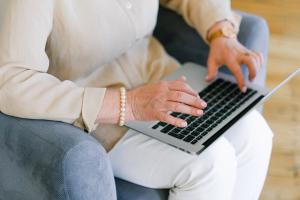Ofcom: Digital divide has narrowed but 1.5m still offline
 New research from telecoms regulator Ofcom has shown that the UK’s digital divide has narrowed during the COVID-19 pandemic, but a significant minority still lack a proper broadband connection.
New research from telecoms regulator Ofcom has shown that the UK’s digital divide has narrowed during the COVID-19 pandemic, but a significant minority still lack a proper broadband connection.
According to the research, the number of UK homes without internet access fell from 11 per cent in March 2020, the month the UK first entered COVID-19 lockdown, to 6 per cent in March 2021.
Ofcom stated that the pandemic had helped adults who previously had “limited digital skills” become more comfortable with activities like video calling and online shopping, often with support from younger friends or relatives.
However, Ofcom also highlighted that lockdown is likely to have deepened digital exclusion for the 6 per cent of homes without broadband. Those in this group are more likely to be over 65, financially vulnerable or a low-income household.
Ofcom found that close to half of adults who aren’t online find the internet too complicated or say they aren’t interested, while a third lack the proper equipment. Around 60 per cent had asked someone else to do something online for them over the past year.
A lack of sufficient connectivity can be particularly damaging for children. Although Ofcom found that nearly all school age children had internet access at home, 4 per cent relied on mobile access, with 2 per cent relying on a smartphone.
One in five school age children did not have consistent access to a device suitable for online learning, rising to a quarter among children from the most financially vulnerable households. 3 per cent of schoolchildren were prevented from doing any schoolwork due to lack of access to a suitable device.
Ofcom Strategy and Research Group Director Yih-Choung Teh commented: “For many people, lockdown will leave a lasting legacy of improved online access and better digital understanding. But for a significant minority of adults and children, it’s only served to intensify the digital divide.”
“We’ll continue to work with Government and other partner organisations to promote digital literacy and ensure that people of all ages and backgrounds are empowered to share in the benefits of the internet.”







